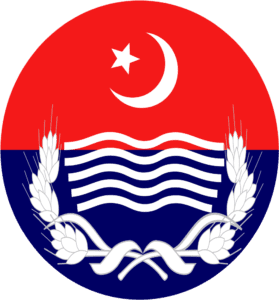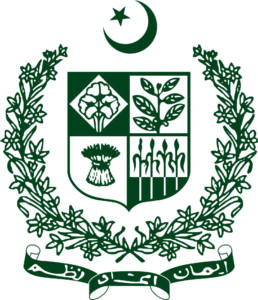Responsible for law enforcement, maintenance of public order, and policing duties at both federal and provincial levels.
Governing Body
Introduction
The Police Service of Pakistan (PSP) replaced the Indian Imperial Police in 1948, a year after Pakistan became independent from the British Raj. The service commands and provides leadership to federal, provincial, and territorial police forces. Its officers are assigned to different districts, provinces and stations across Pakistan. Most of the country’s highest profile law enforcement positions are staffed by members of the PSP, including Inspector Generals of provinces, the Director Generals of the Intelligence Bureau and Federal Investigation Agency, and superintendents of the Frontier Constabulary & National Highways and Motorway Police. Officers are recruited through an extremely competitive examination held once a year by the Federal Public Service Commission. Those selected then must undergo a six-month training programme known as CTP at the Civil Services Academy (CSA) in Lahore, and a further 18 months of specialized training occurs at the National Police Academy Islamabad.
Training
The government of Pakistan conducts Central Superior Service (CSS) Exams annually through its designated department Federal Public Service Commission (FPSC). Selected candidates are trained at the Civil Services Academy in the training known as Common Training Programme which is followed by specialized training of the respective cadres in different designated institutions. National Police Academy (NPA) is the specialized police training institute of Pakistan that trains Assistant Superintendents of Police (ASPs). Initially, ASPs were trained in Basic Courses which subsequently replaced with Initial Command Course (ICC) after 1998.
Initial Command Course (ICC) is a Specialized Training Programme (STP) designed for the new entrants of the Police Service of Pakistan (PSP) or mid-level police managers which is spread over 18 months. This training consists of four different phases
- Foundation
- Development
- Field Attachment
- Consolidation.
The Police Service of Pakistan (PSP) replaced the Indian Imperial Police in 1948, a year after Pakistan became independent from the British Raj. The service commands and provides leadership to federal, provincial, and territorial police forces. Its officers are assigned to different districts, provinces and stations across Pakistan. Most of the country’s highest profile law enforcement positions are staffed by members of the PSP, including Inspector Generals of provinces, the Director Generals of the Intelligence Bureau and Federal Investigation Agency, and superintendents of the Frontier Constabulary & National Highways and Motorway Police. Officers are recruited through an extremely competitive examination held once a year by the Federal Public Service Commission. Those selected then must undergo a six-month training programme known as CTP at the Civil Services Academy (CSA) in Lahore, and a further 18 months of specialized training occurs at the National Police Academy Islamabad.
Police Ranks
Grade | Police Rank | Directorial/Secretarial Appointment |
BPS-17 | · Assistant Superintendent of Police · Deputy Superintendent of Police | · Assistant Director, Intelligence Bureau · Assistant Director, Financial Monitoring Unit · Assistant Director, Federal Investigation Agency · Assistant District Officer, Frontier Constabulary · Sub-Divisional Police Officer (SDPO) |
BPS-18 | · Additional Superintendent of Police · Superintendent of Police | · Deputy Director, Intelligence Bureau · Deputy Director, Financial Monitoring Unit · Deputy Director, Federal Investigation Agency · SP Dolphin Force (only in Punjab) · District Officer, Frontier Constabulary · District Police Officer (DPO) of smaller districts |
BPS-19 | · Assistant Inspector General of Police · Senior Superintendent of Police | · Director, Intelligence Bureau · Additional Director, Federal Investigation Agency · Director, National Police Academy · Course Commander, National Police Academy · Additional Director, Financial Monitoring Unit · Additional Director, Special Security Unit · Additional Director, National Crisis Management Cell · District Police Officer (DPO) of larger districts · City Police Officer (CPO) |
BPS-20 | · Deputy Inspector General of Police | · Director General, NACTA Headquarters · Deputy Director General, Intelligence Bureau · Director, Federal Investigation Agency · Director, Financial Monitoring Unit · Deputy Commandant, Frontier Constabulary · Director, Special Security Unit · Director, National Crises Management Cell · Deputy Commandant, National Police Academy · Director, National Police Bureau · Director, National Police Academy · Regional Police Officer (RPO) of a division · Capital City Police Officer (CCPO) · City Police Officer (CPO) |
BPS-21 | · Inspector General of Police · Additional Inspector General of Police | · Inspectors General Of Azad Jammu & Kashmir, Gilgit Baltistan and Islamabad Capital Territory · Managing Director, National Police Foundation · Director General, National Police Bureau · Director General, Financial Monitoring Unit · Joint Director General, Intelligence Bureau · Director General, National Crises Management Cell · Additional Director General, Federal Investigation Agency · Deputy National Coordinator, National Counter Terrorism Authority |
BPS-22 | · Inspector General of Police · General of Police (Federal Police) | · Provincial Police Officers of Punjab, Sindh, KP and Balochistan · Secretary, Narcotics Control Division · National Coordinator, National Counter Terrorism Authority · Director General, Intelligence Bureau · Director General, Federal Investigation Agency · Director General, National Police Bureau · Inspector General, Pakistan Railways · Commandant, National Police Academy · Commandant, Frontier Constabulary · Inspector General National Highways &Motorways Police |

























3 Comments
I’m interested. How can I apply in the CSS exam?
am interested in how i apply in the css exam
CSS Lovers